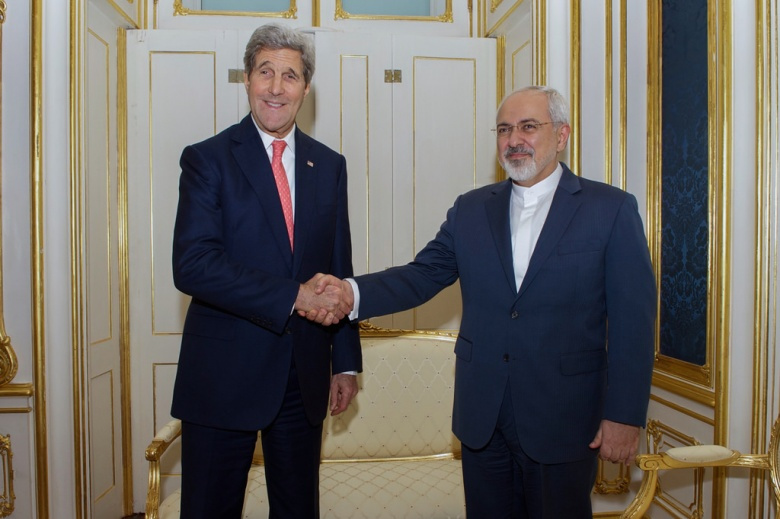If the Iran Nuke Talks Fail...
What if the nuclear talks with Iran completely break down at some point, as quite a few people in Congress and the Washington policy community seem to want? We believe the results might be more dangerous for Iran, the United States, and the Middle East than an imperfect deal that keeps Iran a healthy distance from a bomb and gives the United States reasonable confidence that it could catch an Iranian attempt to dash to a weapon, without eliminating Iran's nuclear program.
First of all, the possibility of an Israeli military strike on Iran's nuclear facilities goes up considerably. The Israelis would claim that, having restrained themselves for years while the talks were ongoing, they now had the moral right and strategic imperative to act. It is possible that Israel has been bluffing all along to try to get the United States and international community to act— or that its last realistic window of opportunity to bomb Iran was in 2010-2012 before the deeply buried Fordow nuclear facility became operational rendering an Israeli air strike ineffective.
However, it is also quite possible that lacking a large enough air force for a comprehensive campaign, the Israelis will launch a less ambitious set of strikes, in order to set the Iranian nuclear program back a few years while leaving Iran’s conventional naval and missile capabilities intact.Iran might retaliate proportionally with missile strikes against Israel and using its global network of proxies to launch terrorist attacks against Israeli and possibly American targets.Or Iran could go further, believing that the United States was complicit in the attack and respond conventionally against American naval assets and forces deployed on the Arabian Peninsula, forcing the United States to finish the job through a military campaign lasting weeks against Iran: something that would be worse for Iran than the United States, but that to say the least, we should all want to avoid.
A collapse in the talks could also lead to an escalation of the ongoing regional covert war between Iran and an undeclared coalition of Israel and Saudi Arabia. Mysterious assassinations of Iranian nuclear scientists and senior level Islamic Revolutionary Guards Corps commanders could increase. We could see more rocket launches from southern Lebanon into Israel or a spillover into Europe with attacks such as the Hezbollah bombing in Bulgaria in 2012.
The covert war could also move back into the cyber domain resulting in more cyber attacks on Iran’s nuclear program - but also a resumption of Iranian attacks on U. S. companies, banks, and government institutions, as well as more attacks such as the one that caused major damage to Saudi Aramco in 2012. Such a rapidly deteriorating regional security situation could send oil prices back up towards $100 per barrel and also dramatically increase the possibility of unintended escalation that could draw the United States in.
A collapse of the talks could also lead Iran to abandon its nuclear hedging strategy of the past ten years and instead decide to make a dash for a bomb. Such a decision would force the United States to choose between two terrible options both of which are much costlier than the status quo — pursuing military action against Iran or accepting a nuclear-armed Iran.
Beyond the negative repercussions of a collapse of the talks, the United States and Iran will both bypass a number of historic opportunities.The United States and Iran may not support the same sides or pursue the same long-term objectives in Syria, Iraq, and Yemen, but there is an opportunity for some limited cooperation against the Islamic State and Al-Qaeda in the Arabian Peninsula.With the collapse of the talks whatever prospect that might exist for tacit collaboration would rapidly dissipate, hurting both the United States and Iran.
Let's be clear: air power alone will not defeat the Islamic State. We cannot defeat the Islamic State, President Bashar al-Assad's forces in Syria, and Iran all at the same time.Some level of cooperation with Iran, however undeclared, however indirect, and carried out exclusively through back-channels will be necessary. A nuclear agreement would set a favorable context for this. As for Iran's nefarious influence on Iraq that many use as an excuse against cooperation with Tehran to defeat the Islamic State, that reality has obtained ever since the American-led 2003 invasion: for reasons of geographical proximity and history, an Iraq partly subjugated by Iran is an inescapable reality until the Iranian regime itself changes. It was only Saddam Hussein's suffocating, totalitarian rule in Baghdad that kept Iran out of there.
There will also be missed opportunities in Afghanistan, where Iran has a long history of opposing the Taliban, and thus can be employed to ease the withdrawal of U. S. forces there.Indeed, in the aftermath of the U.S. invasion of Afghanistan – in probably the closest cooperation the United States and Iran have pursued since the Islamic revolution – Iran played a critical role in supporting the agreement that led to the formation of a new Afghan government. In the aftermath of a nuclear agreement, similar cooperation should be a high priority in the service of protecting our troops.


No comments:
Post a Comment